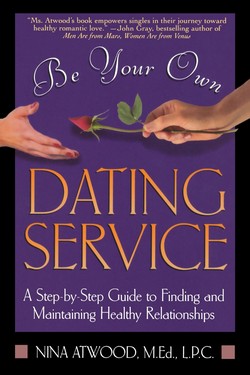Can You Make it From “Hello” to “I Do?”
By Nina Atwood
In dating, itís vital that you discern a true commitmentphobe from a person who is perhaps a bit reluctant to make a commitment but will eventually come around. If youíre dating someone over the age of 25, and he/she has been hurt in the past, then youíre probably going to face some emotional baggage in the form of hesitancy to commit, especially with people who have been divorced. Thatís normal, and can usually be worked through in a relationship as long as both people a.) really love each other, and b.) are fundamentally compatible.
Therefore, the first thing you have to discern is whether or not you are a person that this person could see him/herself marrying. For a complete outline of how to have this kind of conversation powerfully, read Date Lines: Communication from ďHelloĒ to ďI DoĒ and Everything in Between.
The next thing to do is to look at the personís history. Donít be afraid to ask lots of questions about this personís past. Go through each significant relationship; ask how long it lasted, who ended it, and how. If you see that this person is always the one who leaves, drill down more. Ask why he/she left the relationship. Look for clues in the story that tell you it was fear of commitment. Youíll hear things like the following:
- Iíve looked a long time [multiple significant relationships†over ten or more years] and I just canít seem to find the right person
- People seem one way at the beginning, but then they change; Iím looking for someone who isnít putting on a good act in the beginning
- I always seem to date people who are too needy, who want to pin me down; I want someone who is totally independent, who wants freedom in a relationship
- I donít see why you canít just be with someone without marriage; itís just a piece of paper anyway
Youíll also see the commitmentphobe unable to have pets and with†few really close, lasting relationships. He/she will often talk about being†unable to make a choice about something thatís rather basic.
Commitmentphobes donít wear signs that warn you against dating them. You have to know what to look for and how to spot this destructive dynamic. You must develop the ability to listen not just to whatís being said, but to what isnít being spoken. You must develop a strong inner compass for what you want out of life and out of a love relationship, then vocalize it with confidence. Notice how well your wants and needs resonate with the other person, not just in word but in deed.
Finally, make sure you donít fall into the trap of wanting to change the commitmentphobe so that you can feel special (i.e., after leaving so many partners, he/she chose me!). In the next post weíll look at whether or not you can change a commitmentphobeís mind about marriage.
†
Entry Filed under: Dating





